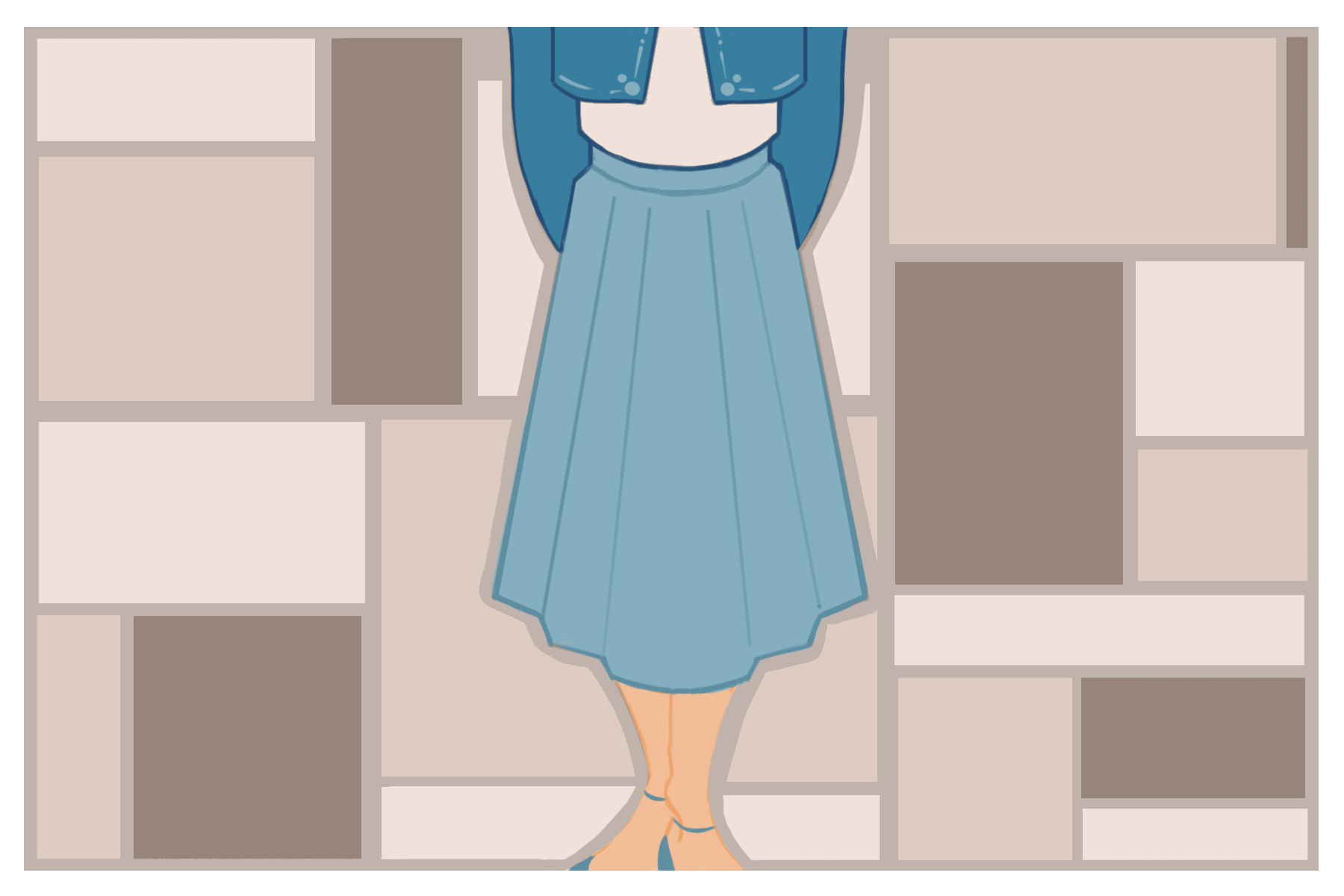Recently, videos of oddly satisfying, ASMR-esque tasks, such as cutting soap, mixing paint or tidying up messy spaces, have begun ballooning in popularity. The new Netflix Original “Tidying Up with Marie Kondo” is no exception, as viewers watch disorganized people transform their homes into something more manageable and aesthetically pleasing. The show is aspirational, presenting the KonMari method in a simple way that makes the viewer think, “Hey, I can do this too!”
However, do self-help shows like this do more harm than good, potentially perpetuating shame associated with millennial burnout culture?
On Jan. 5, Anne Helen Peterson’s article, “How Millennials Became the Burnout Generation,” was published on BuzzFeed News. In it, Peterson explains the nuance behind what burnout is and what causes it. For those of you who don’t want to read a 7,800-word article (I wouldn’t blame you), I’ll give you the gist.
Burnout isn’t the inability to thrive in your day-to-day life — in fact, many burnt-out people still excel in work or school. It’s when little things that don’t require a lot of time or brainpower, like replying to an email or doing the dishes, fall through the cracks and take much longer than they should to accomplish, if they ever get done at all. Common symptoms associated with burnout include physical and emotional exhaustion, cynicism, detachment, apathy and a lack of productivity.
Burnout is caused by the ingrained notion that we need to optimize our productivity in the workplace in order to remain useful to our employers. For college students, who are primarily considered Generation Z now, our primary concern was getting perfect grades that would get us into a good college, which in turn will earn us a high-paying, respectable career someday. We’re taught to strive toward the success we’re promised if we push ourselves just a little bit harder.
“As American business became more efficient, better at turning a profit, the next generation needed to be positioned to compete,” Peterson wrote. “We couldn’t just show up with a diploma and expect to get and keep a job that would allow us to retire at 55. In a marked shift from the generations before, millennials needed to optimize ourselves to be the very best workers possible … We didn’t try to break the system, since that’s not how we’d been raised. We tried to win it.”
Perfectionism has become institutionalized, perpetuated by the praising of valedictorians, students who take AP courses and those who can build the most impressive resumes — compared to their peers. A clear, perhaps near-impossible-to-obtain path has been outlined for us to reach our reward of a good, stable life. Like Peterson wrote, we aren’t trying to break the system — we are desperately trying to follow the rules and earn what we believe we deserve.
College students are encouraged to take internships, even if they’re unpaid, just for the experience. Graduate students teach undergraduate classes, essentially doing a professor’s job, for the experience, college credit or sometimes a meager paycheck. We work well into the night and devote our weekends to homework around our already packed schedules. What many call “preparing for the real world,” I call exploitation.
During the past few years, on-campus counseling centers have seen a significant influx of students reaching out for help with mental health problems such as anxiety, depression, helplessness and, even if they didn’t have a word for it, burnout. The number of students going to counseling centers has gotten so high that the counselors themselves are developing “battle fatigue.”
Burnout is often accompanied by shame, because we constantly compare ourselves to our peers, mainly through the fake lens of social media, where people only share the best versions of their lives. Additionally, many students are plagued by imposter syndrome, as they believe that everyone else has their lives put together and the clock is ticking before somebody finds out that they’re a fraud.
So, we work hard. We push ourselves past our boundaries because we believe it’s the only way to earn our dream life. We play by the rules and try to be the very best at what we’re doing, even if it’s killing us.
And it’s this mindset of internalized optimization that makes “Tidying Up with Marie Kondo” so appealing. She teaches others how to fold their clothes to take up less space and store their belongings in compartmentalized boxes. A cluttered house is a cluttered mind, the show seems to advise its viewers, and it presents them with a simple, intoxicating method to have a clean house, just like they see on TV.
And I’ll admit it: After watching the show, I did reorganize my clothes drawer and fold my shirts in the KonMari way. I didn’t hold each item to see if it “sparked joy” in me, but the technique, which displays all the shirts side by side instead of on top one another, does make sense. Two friends of mine, my boyfriend and even my mother, independently decided to use the KonMari method of folding their clothes as well.

There’s absolutely nothing wrong with wanting to live in a clean and tidy environment. What’s troubling is that this fad, as with most fads, can be problematic. People get gung-ho on adopting a system that will “fix their lives,” but they’ll eventually fizzle out and revert to their old ways. It’s like the age-old trope of setting a New Year’s resolution to work out more, getting a gym membership and then never going. You’re setting yourself up for failure.
Again, this failure isn’t necessarily your fault. It’s just another facet of being burnt out — the mundane parts of life, especially those associated with having a tidy private area, seem unimportant in the grand scheme of our lives. In the mind of a burn-out, doing laundry isn’t going to get you any closer to finishing your calculus lab, and it may even be regarded as procrastination from the real work you need to accomplish.
The KonMari method also has received criticism since the book came out in 2014. Book lovers are appalled by Marie Kondo’s advice about which books to keep, and others aren’t eager to embark on a self-help trip every time they clean their house. It’s been called a fantasy, and some even question her role in perpetuating gender norms and exacerbating the mental load women face.
Having a clean living environment is ideal, but it shouldn’t become another thing for young people to feel guilty over. In an optimized world, clear-cut methods of how to accomplish things quickly and efficiently are desirable, but not everything needs to be functioning at its highest caliber at any given moment, yourself included. So, I encourage you all to kick your feet up, watch some “Tidying Up with Marie Kondo” and allow yourself to ignore your messy shelves and drawers. You deserve it.
















